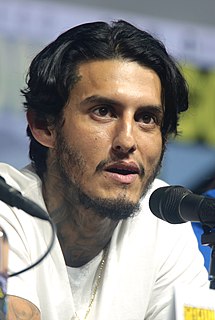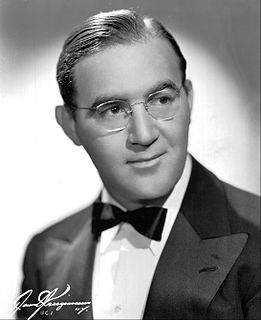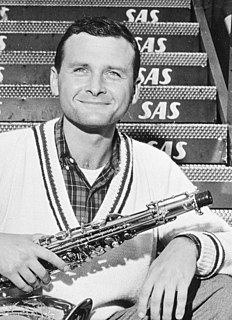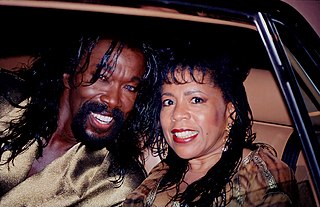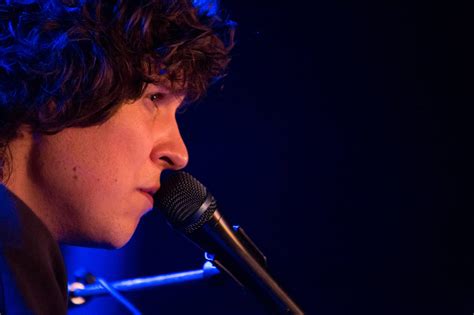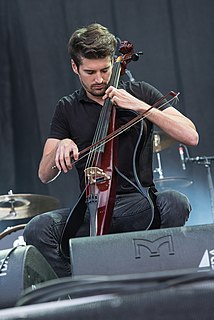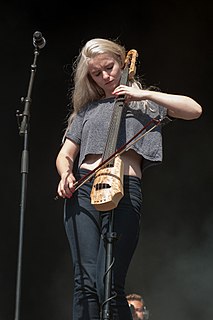A Quote by Helen Mirren
With that incredible voice that he [Alan Rickman] could play like a sort of wonderful instrument, like a cello or something. He played his voice, and he could be the most subtle of actors. And he could also be quite a big actor. He could do the grandiose performances as well.
Related Quotes
It [my vocal] didn't sound like what I wanted to hear; the vibrato isn't what I liked anymore. So I got myself to an ear, nose and throat guy who does a lot of work with singers, and I was hoping there was a big wart on my vocal cords or something and they could scrape it off and I could have the voice I wanted. But he said, "No, for 71, that's your voice."
There's so many ways to be a voice and that's what I'm figuring out. Being an artist, being an actor, it's about telling stories that could heal, that could open up discussion that could make the community better. There are many (Latino) stories that need to be told and haven't been told right. If I could help be that voice then that's what I'm going to do, because this is a reality for me.
Somebody's real voice is probably the hardest one that somebody could attempt. The characters are all, believe it or not, rooted in a reality of some sort. I've met and talked to people, and they're also fusions of showbiz periphery. But the best thing was, if you did your own voice and you were the star of the show - if it came to blows and they had you on the ropes and you had to leave, then they could just get someone to sound exactly like you.
I think my first impression (of Bix Beiderbecke) was the lasting one. I remember very clearly thinking, 'Where, what planet, did this guy come from? Is he from outer space?' I'd never heard anything like the way he played-not in Chicago, no place. The tone-he had this wonderful, ringing cornet tone. He could have played in a symphony orchestra with that tone. But also the intervals he played, the figures-whatever the hell he did. There was a refinement about his playing. You know, in those days I played a little trumpet, and I could play all the solos from his records, by heart.
I remember someone once saying, "Pete, you know you really should take voice lessons." And I said, "Well, if I could find any voice teacher that could teach me to sing like Lead Belly I'd spend every cent to study under him." But every time you'd go to a voice teacher, he'd teach you to warble, as if you'd want to be an opera singer, and that's not what I'm interested in.
But he could not taste, he could not feel. In the teashop among the tables and the chattering waiters the appalling fear came over him- he could not feel. He could reason; he could read, Dante for example, quite easily…he could add up his bill; his brain was perfect; it must be the fault of the world then- that he could not feel.
Switch to piano! No. Really, if you like an instrument that sings, play the saxophone. At its best it's like the human voice. Of course, it would be best if you could actually sing with your own voice. The saxophone is an imperfect instrument, especially the tenor and soprano, as far as intonation goes. Therefore, the challenge is to sing on an imperfect instrument or 'voice' that is outside of your body. I love that challenge and have for over forty-five years. As far as playing jazz, no other art form, other than conversation, can give the satisfaction of spontaneous interaction.
One big power of an actor is knowing when to say no to something. It can be very tempting to say yes to something, because you're flattered that somebody would like to work with you, and your ego sort of takes over, but it's important to ask whether there could be something you could add to a project by being part of it.
Both my grandmothers had upright pianos, and I just knew how to play since I was a child. Nobody taught me. I sounded like a grown-up, and then I learned how to read music. I played so well by ear I could fool the teacher to believe I could play the notes. She'd make the mistake of playing the song once, and I could play it.
I started piano like my sisters. After one year or two, I didn't like it anymore. Then, because I like trumpet, I played the cornet. When you are 7, you can't play trumpet - you play cornet. And something didn't go well. The teacher was too hard. Too rough. Suddenly, there was this instrument, the flute, that I could immediately play.
Working in Italy can be quite hard because they don't have schedules - we arrive at TV shows and they're like, 'We're not sure when you're on, could be a minute, could be an hour.' We were on their equivalent of 'The Voice' and the timing was determined by whenever the judge decided the time was right. We waited five hours!



